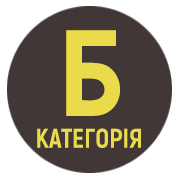THE USE OF ENGLISH-LANGUAGE FOOD VLOGS IN TEACHING MODERN ENGLISH
DOI:
https://doi.org/10.32782/folium/2024.5.17Keywords:
English language teaching, food vlogs, authentic video materials, interactive learning, cultural awarenessAbstract
The article explores the use of English-language food vlogs as an innovative tool in teaching modern English. It analyzes the advantages of integrating authentic video materials into the learning process, focusing on their impact on developing listening skills, expanding vocabulary, and enhancing cultural awareness of English-speaking countries. Food vlogs offer students a unique opportunity to familiarize themselves with different accents, speech styles, and contemporary vocabulary actively used by native speakers. All this fosters not only language skills but also communicative and creative abilities. Using food vlogs in the English language teaching helps create a dynamic and motivating environment that enhances the effectiveness of language acquisition. Additionally, the research shows that such media products shape modern gastronomic trends and influence food consumption culture, facilitating the interaction between language, culture, and culinary trends in the virtual space. In food vlogs, vloggers often express frustration or excitement to highlight their emotions and impressions of the cooking process. They use a humorous tone, add personal comments and advice, making the content more emotionally engaging. Examples of such popular channels include You Suck at Cooking, Jamie Oliver's channel, and Babish Culinary Universe. Notably, some recipe videos communicate solely through visuals, without spoken words, relying only on video captions.
References
Bilyk O. et al. Ways of Engaging First-Year Students in Discussions Through Small Group Work. Journal of Vasyl Stefanyk Precarpathian National University. 2023. 10, 1 (Apr. 2023), P. 76–86. DOI: https://doi.org/10.15330/jpnu.10.1.76-86.
Blood R. Weblogs: A History and Perspective. We’ve Got Blog: How Weblogs Are Changing Our Culture. Basic Books, 2011. Р. 7–16.
Cesiri D. The blog is served: crossing the ‘expert/non-expert’ border in a corpus of food blogs. Colloquium: New Philologies, 1 (1), 2016. P. 47-62.
Chen W., Bonk C.J. The use of weblogs in learning and assessment in Chinese higher education: Possibilities and potential problems. International Journal on E-learning. 2008. Vol. 7.1, 2008. Р. 41–65.
Frobenius M. Audience design in monologues: How vloggers involve their viewers. Journal of Pragmatics, 2014. 72. P. 59–72.
Goffman E. Forms of Talk. Philadelphia: University of Pennsylvania Press, 1981.
Khansa Tala El. A Critical Discourse Analysis on the Language of Food Bloggers in Lebanon. 2018. URL: https://laur.lau.edu.lb:8443/xmlui/bitstream/handle/10725/8589/Tala_El_Khansa_
Thesis_Redacted.pdf
Lofgren J. Food Blogging and Food-related Media Convergence. M/C Journal, 2013. 16(3).











